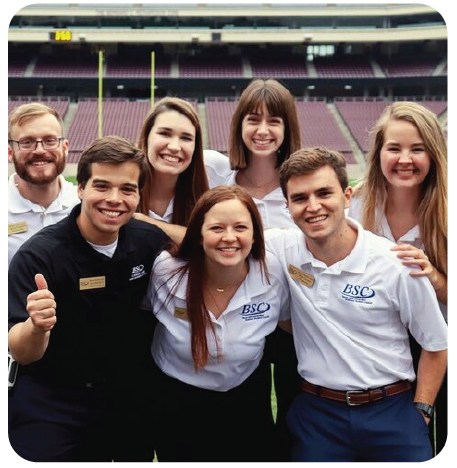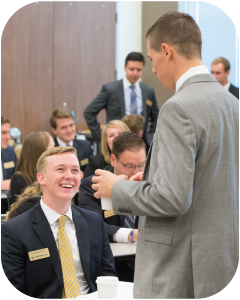BBA Business Honors
We help develop our students unique strengths and prepare them for a successful professional career. Our students maintain academic excellence throughout their studies and can double major. Business Honors students have a 100% job placement or graduate school placement.

Academic Overview

Freshmen who are selected for Business Honors enter Mays as Business Honors (BHNR) majors. Selection for Business Honors is highly competitive. We seek students whose academic excellence is matched by strong character, leadership skills, and teamwork.
Degree Details
Advising
Students selected for the program enter as Business Honors (BHNR) majors. Business Honors students receive customized academic advising from the Business Honors program staff.

Advanced Opportunities
Become a leader in business with our
BBA Business Honors
Job or Graduate School Placement Rate
of Students Complete an Internship
Average Starting Salary of Graduates
Study, Travel, or Volunteer Abroad

Student Organizations
We help you develop your leadership capabilities and refine your talents by participating in student organizations. Learn about the opportunities to join our wide options for student organizations.
What is Business Honors?
Business Honors offers a Bachelor of Business Administration degree, and students have the opportunity to double major in another major within Mays Business School. Business Honors majors have the opportunity to participate in professional development events, engage with current and former students, enroll in Business Honors only courses, and complete an internship.






